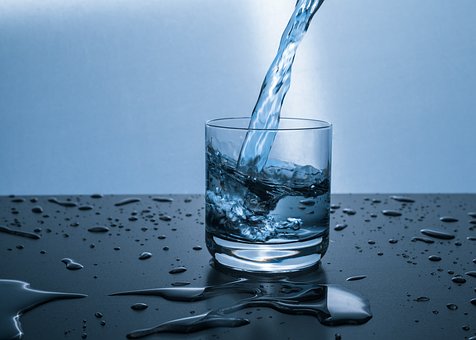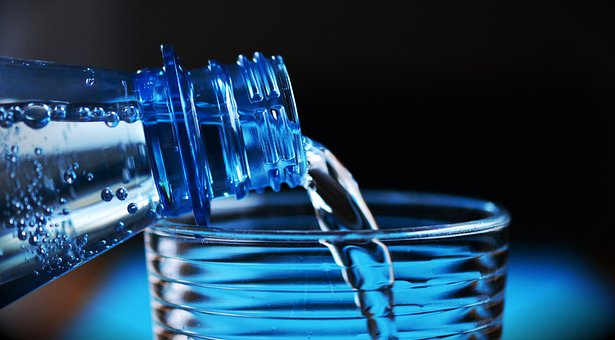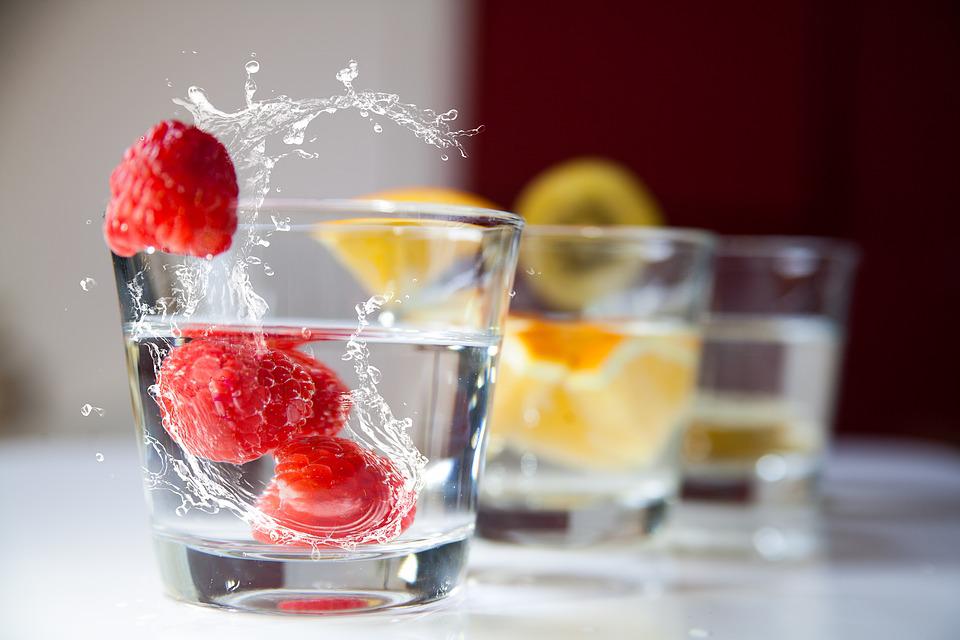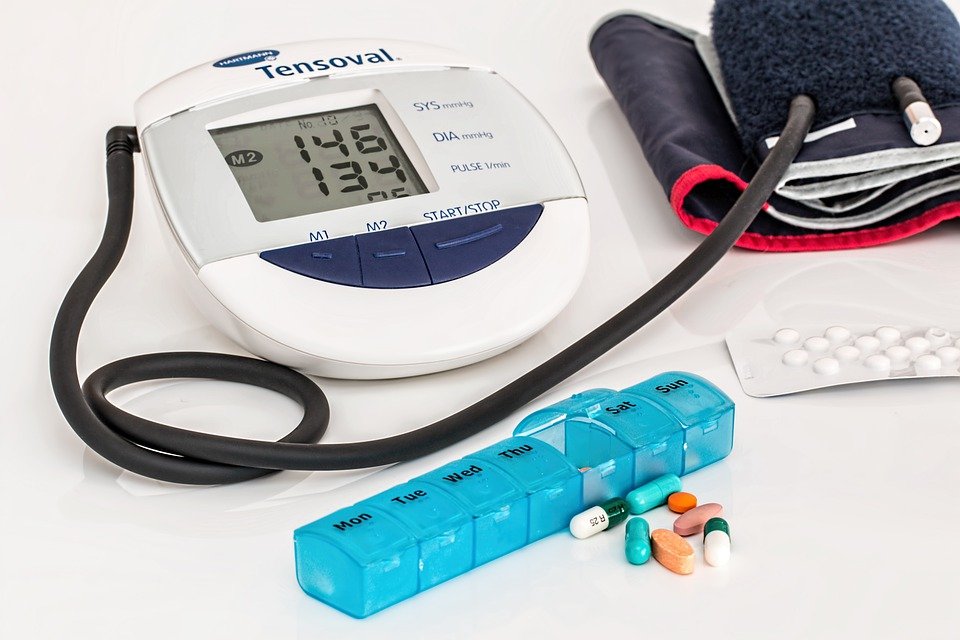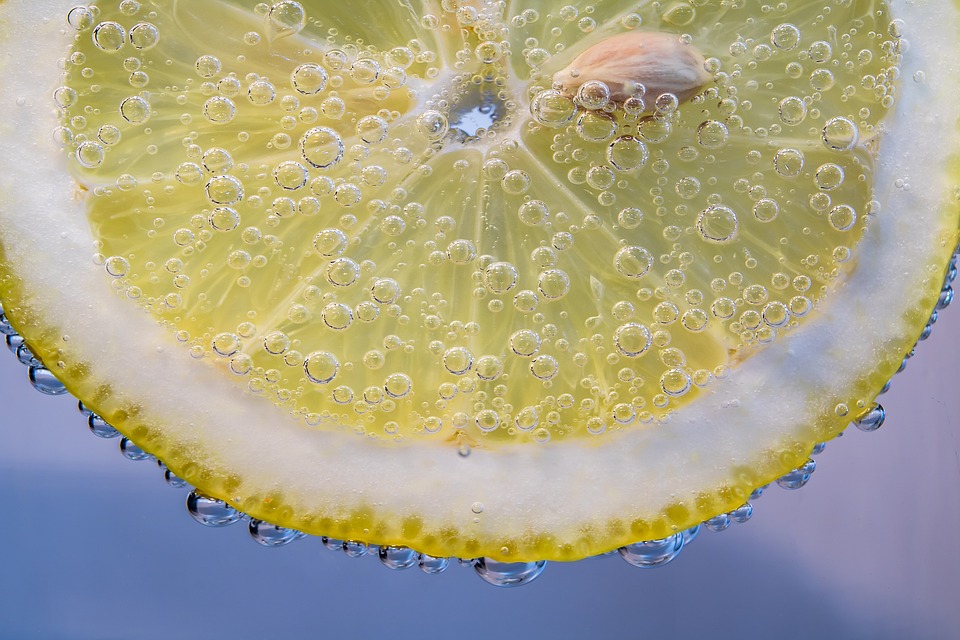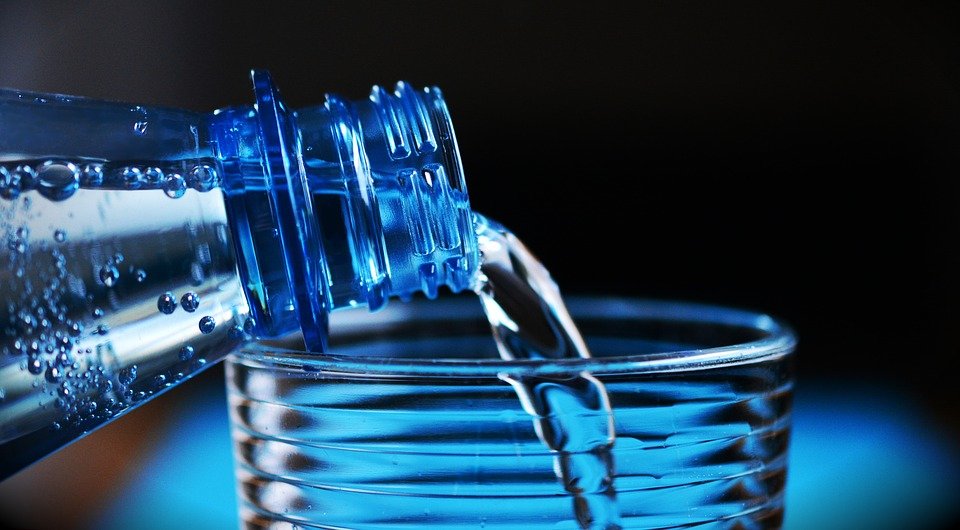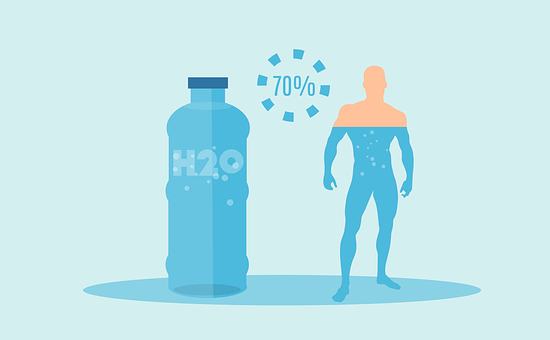
The Basics of Dehydration
What is dehydration and what causes it?
Dehydration means the body doesn’t have as much fluid within the cells and blood vessels as it should.
Normally, the body constantly gains fluid through what we eat and drink, and loses fluid through urination, sweating, and other bodily functions. If we do not consume enough fluids and continue to lose them, we can end up dehydrated.
The body will indicate to the brain when someone is beginning to lose hydration by producing thirst. The kidneys are intended to concentrate the urine, resulting in less water loss.
Why are older adults at higher risk for dehydration?
Unfortunately, the body’s mechanisms meant to protect us from dehydration work less well as we age. Older adults have reduced thirst signals and also become less able to concentrate their urine.
Other factors that put older adults at risk include:
- Chronic problems with urinary continence, which can make older adults reluctant to drink a lot of fluids
- Memory problems, which can cause older adults to forget to drink often, or forget to ask others for something to drink
- Mobility problems, which can make it harder for older adults to get something to drink
- Living in nursing homes, because access to fluids often depends on the availability and attentiveness of staff
- Swallowing difficulties
Dehydration can also be brought on by an acute illness or other event. Throwing up, having loose bowels, a high temperature, and catching an illness can all lead to drastic levels of fluid loss, resulting in dehydration.
There appears to be a connection between COVID-19 and dehydration in seniors, yet it’s hard to tell if the virus is directly responsible for this or if the elderly may be less likely to take in beverages due to feeling ill. And of course, hot weather always increases the risk of dehydration.
Finally, the elderly are more prone to utilize treatments that can lead to dehydration which include water pills, a usual prescription for treating high blood pressure or congestive heart failure.
An investigation in the United Kingdom involving elderly people in assisted living environments revealed that almost half of them had signs of forthcoming or existing dehydration, which was identified based on blood tests.
How is dehydration diagnosed?
If you are worried that an elderly person may be dehydrated, an easy way to check for this is to have them consume some liquids and see if their condition noticeably gets better. (This often happens within 5-10 minutes.)
This is not a clinically-proven method, but it’s easy to try. If drinking some fluids does noticeably improve things, that does suggest that the older person was mildly dehydrated.
For a truly accurate diagnosis in older adults, the most accurate way to diagnose dehydration is through laboratory testing of the blood. Dehydration generally causes abnormal laboratory results such as:
- Elevated plasma serum osmolality: this measurement relates to how concentrated certain particles are in the blood plasma
- Elevated creatinine and blood urea nitrogen: these tests relate to kidney function
- Electrolyte imbalances, such as abnormal levels of blood sodium
- Low urine sodium concentration (unless the person is on diuretics)
(Doctors often sub-classify dehydration based on whether blood sodium levels are high, normal, or low.)
Dehydration can also cause an increased concentration of urine — this is measured as the “specific gravity” on a dipstick urine test. This evaluation technique is not correct for determining dehydration in those who are more mature since it is typical for elderly people to have a diminished capability to concentrate urine. This was confirmed by a 2016 study, which found that the diagnostic accuracy of urine dehydration tests in older adults is “too low to be useful.“
There are also a number of physical symptoms associated with dehydration. However, a 2015 study of older adults found that the presence or absence of dehydration symptoms is not an accurate way to diagnose dehydration.
Physical signs of dehydration may include:
- dry mouth and/or dry skin in the armpit
- high heart rate (usually over 100 beats per minute)
- low systolic blood pressure
- dizziness
- weakness
- delirium (new or worse-than-usual confusion)
- sunken eyes
- less frequent urination
- dark-colored urine
But as noted above: the presence or absence of these physical signs are not reliable ways to detect dehydration. Additionally, any of the physical indicators mentioned above could potentially be due to health issues other than dehydration.
The results of a 2019 research project showed that using regular symptoms as indicators of dehydration was not reliable in regard to elderly people living in care resident homes. The research, titled “Signs and Symptoms of Low-Intake Dehydration Do Not Work in Older Care Home Residents—DRIE Diagnostic Accuracy Study” concluded that a different approach was necessary when attempting to identify levels of dehydration among these individuals.
In 2020, a European team carried out research to find a method for recognizing dehydration in nursing home inhabitants and produced a concise explanation of their diagnostic approach. A blend of medical records, physical manifestations, and laboratory assessments is required.
To sum it up, there is no straightforward or effortless method of determining if an elderly person is dehydrated or not.
If you are anxious regarding dehydration which is hazardous to your health, or you are noticing the signs that have already been mentioned, laboratory tests could be necessary. A doctor should speak with a patient and give them a physical examination in order to assess if they are dehydrated.
What are the consequences of dehydration?
The severity of the outcome varies depending on the degree of dehydration and possibly how long it has lasted.
In the immediate future, a lack of hydration may lead to the previously mentioned physical symptoms. In elderly individuals, instability and lightheadedness can lead to taking a tumble. In individuals with Alzheimer’s or other types of dementia, slight dehydration can yield a detectable decline in clarity of thought or cognitive abilities.
Not hydrating enough can often lead to the kidneys not functioning optimally, and in extreme circumstances can even result in acute kidney failure.
It is not as clear what the results of regular mild dehydration could be, meaning dehydration that would be noticeable in lab tests but would not display any outward signs.
Chronic mild dehydration can make constipation worse. A study done in 2012 concluded that the main health problem resulting from not drinking enough water on a daily basis is the development of kidney stones.
A 2013 review on fluid intake and urinary system diseases concluded that there is reason to believe that not having enough water can lead to urinary tract infections, but this hypothesis has not been definitively proven.
A 2020 study examining the impact of increasing fluid consumption to forestall UTIs emphasized that medical professionals oftentimes recommend to people suffering from UTIs to make sure to stay hydrated or drink more liquids. However, the evidence base for this recommendation remains unclear.”
If you’re worried about recurrent bacteria present in the urine, it’s important to differentiate whether the individual is truly suffering from a urinary tract infection or if it’s just a sign of their aging bladder becoming susceptible to bacterial growth.
This is a frequent sickness called asymptomatic bacteriuria and diagnosing it inaccurately as a urinary tract infection can lead to needless use of antibiotics.
To avoid any misunderstandings concerning hydration and dehydration, here are 8 pieces of knowledge to maintain optimum health.
1. Myth: If You’re Thirsty, You’re Already Dehydrated
There is some truth to this widely repeated statement. Ginger Hultin, RDN, the Seattle-based owner of Champagne Nutrition and the writer of the Anti-Inflammatory Diet Meal Prep, states that this can be a great prompt for individuals since many of us don’t pay attention to our thirst. Therefore, when we come to recognize that we are parched, our bodies are literally asking for water.
But it’s not a one-size-fits-all indicator. Every individual should evaluate whether this statement applies to them or not, as there are multiple potential causes of feeling thirsty. Hultin acknowledges that dehydration is not always the culprit.
2. Fact: Dark Yellow Urine May Signal That You’re Dehydrated
If you are uncertain about how much water you are consuming, this easy method may help: Observe the shade of your urine. Hultin states that the shade of one’s urine can be a decent measure of their hydration level.
The U.S. has published an eight-stage urine color scheme which goes from transparent to a darkish yellow or brown. Army Public Health Command. Hultin points out that people will exhibit various colors in their urine, but the lightest four colors suggest that the individual is hydrated, while the darkest four may imply dehydration. If your urine appears brown, it is advisable to seek medical care immediately as advised by Hultin, as this could signify serious dehydration.
3. Myth: To Avoid Dehydration, Drink as Much Water as You Can
When it comes to water, some people overdo it.
People of any age can suffer from water toxicity, known as hyponatremia, however, certain groups of individuals are more at risk of it than others. This includes those affected by renal impairment, congestive cardiac failure, liver malfunction, persistent harsh nauseating or loosening of the bowels, Addison’s illness, and those taking some medicinal drugs, such as antidepressants and diuretics, as per the Cleveland Clinic and Mayo Clinic. Studies have demonstrated that long-distance athletes can potentially be prone to hyponatremia. Previous research suggests that certain illicit drugs, such as ecstasy or MDMA, could be detrimental and put users at an increased chance of developing hyponatremia.
Do not be anxious if you don’t have any of the possible causes of risk. It isn’t usually a worry for healthy people if they become overhydrated because their kidneys can eliminate any extra fluid to keep the balance of liquid and electrolytes in the body, according to Malkani.
If hyponatremia is serious, some of the symptoms that may be experienced, according to MedlinePlus, include seizures, confusion, tiredness, headaches, sickness, and muscular weakness. Get to a doctor right away if you display these signs, particularly if they are serious.
4. Fact: Some Groups Are at Higher Risk of Dehydration Than Others
Meanwhile, some people need to prioritize hydration.
Hultin warns that dehydration poses a great risk to children, pregnant women, and certain elderly individuals. If a person in any of the relevant categories has a fever, vomiting, or diarrhea, medical evaluations should be conducted to quickly determine their fluid levels.
The Mayo Clinic states that when a child has intense nausea and diarrhea, it is likely to lead to them becoming dehydrated. At the same time, elderly people can actually have less water inside their bodies. Plus, some medications and illnesses may make the situation even worse, per the Mayo Clinic. Severe morning sickness in pregnant women, referred to as hyperemesis gravidarum, can be very dangerous, according to the National Health Service (NHS). It usually results in frequent vomiting and dehydration.
5. Myth: You Can Get Hydrated Only by Drinking Liquids
It is time to stock up on foods from the produce section of the grocery store – it seems that drinking beverages isn’t the only way to bring back your hydration levels.
Malkani explains that although the majority of our fluid intake comes from liquids, a fair portion of it is obtained from watery foods, such as succulent fruits and veggies. The Mayo Clinic points out that certain fruits and greens, such as watermelon and spinach, are mostly made up of water when their weight is taken into consideration. Other hydrating foods include cucumbers, celery, radishes, watercress, grapefruit, cantaloupe, and strawberries, Malkani adds.
Additionally, Malkani explains that salty food and high-sodium cuisines have a dehydrating effect on the body by causing the absorption and circulation of salt in the bloodstream. This reaction prompts the body to extract moisture from its cell in order to stabilize, resulting in the feeling of intense thirst.
6. Fact: Too Little Sleep May Dehydrate You
One more justification for getting adequate amounts of sleep: getting enough sleep may help keep you well-hydrated. In February 2019, research that was printed in the publication Sleep established that people who slept six hours a night tended to be more dehydrated than those who got eight hours of sleep. A potential reason? Researchers suggest that a hormone released during the night called vasopressin contributes to the body being able to remain hydrated. If you are not feeling your best after a short night of rest, have some water when you wake up.
7. Myth: Everyone Needs 8 Glasses of Water a Day to Avoid Dehydration
Like most things in health, hydration goals vary. Hultin states that the amount of nutrients a person needs varies depending on aspects such as how active they are, the food they eat, and the environment in which they live. One should take into account any existing medical conditions, sex, age, and if a woman is expecting or breastfeeding a baby.
The National Academy of Sciences, Engineering, and Medicine advised in 2006 that men should drink 15 cups of liquid daily and women should sip on 11 cups of liquid on a regular basis. But again, it depends. Talk to your general doctor about what your water target should be if you’re worried about not drinking enough.
8. Fact: Having a Respiratory Illness, Such as COVID-19, Makes Hydration Especially Important
If you develop COVID-19, be cognizant of potential dehydration.
Malkani states that if one experiences vomiting, diarrhea, or a fever that causes a higher rate of sweating, it is essential to increase the body’s water intake. The CDC has pointed out that symptoms such as those connected to COVID-19 or others may arise. Increase your liquid intake if you are suffering from any breathing disorders, advises Johns Hopkins Medicine, more than your regular consumption.
It is assumed by researchers that drinking enough liquid could help stop or improve the impact of COVID-19, as mentioned in an article released in November 2020 in Medical Hypotheses. Further research is necessary to explore the potential correlation between dehydration and the contraction and gravity of COVID-19.

